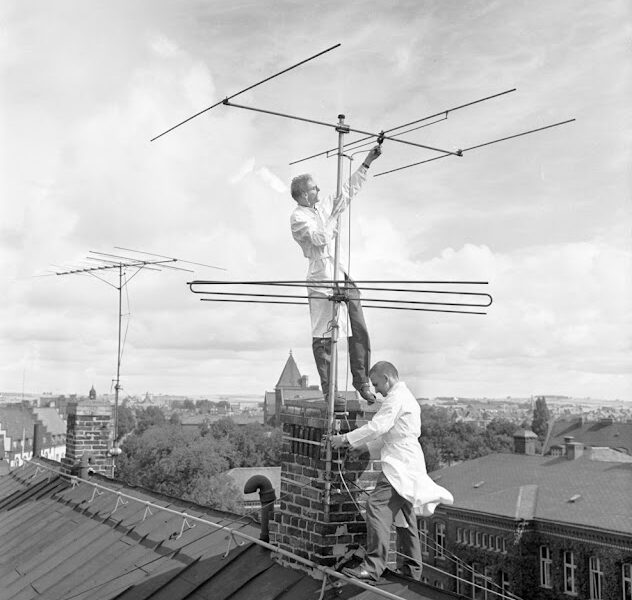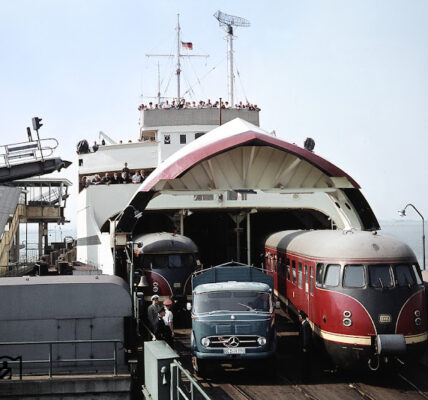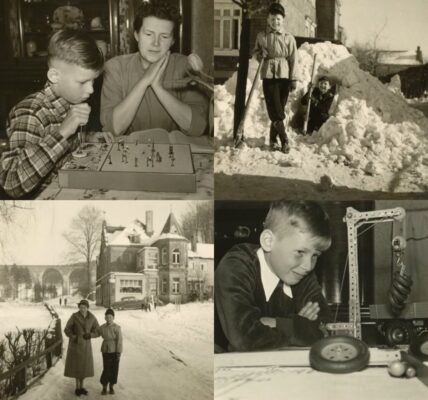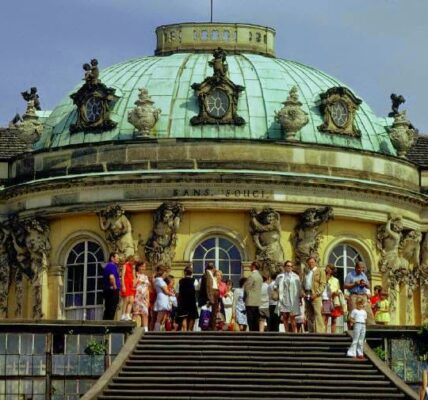A Journey Through East Germany in 1980: Fascinating Photos Capture Life Behind the Iron Curtain.H
hai hai3-4 minutes
Page 1
East Germany, officially the German Democratic Republic (GDR), was a country in Central Europe that existed from its creation on 7 October 1949 until its dissolution on 3 October 1990. Until 1989, it was generally viewed as a communist state, and it described itself as a socialist “workers’ and peasants’ state”.
Video Player
The economy of this country was centrally planned and state-owned. Prices of housing, basic goods and services were heavily subsidized and set by central government planners rather than rising and falling through supply and demand. Although the GDR had to pay substantial war reparations to the Soviets, it became the most successful economy in the Eastern Bloc.
Geographically, the GDR bordered the Baltic Sea to the north, Poland to the east, Czechoslovakia to the southeast and West Germany to the southwest and west. Internally, the GDR also bordered the Soviet sector of Allied-occupied Berlin, known as East Berlin, which was also administered as the country’s de facto capital. It also bordered the three sectors occupied by the United States, United Kingdom, and France known collectively as West Berlin (de facto part of the FRG). The three sectors occupied by the Western countries were sealed off from the GDR by the Berlin Wall
from its construction in 1961 until it was opened in 1989 as part of the Peaceful Revolution against East Germany.
These fascinating photos from Michel Huhardeaux that captured street scenes of East Germany in 1980.
 |
| Halberstadt main street in the morning, 1980 |
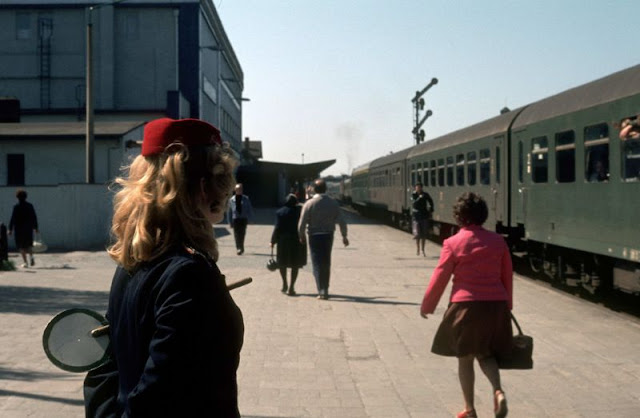 |
| Halberstadt station, 1980 |
 |
| Halberstadt station, Deutsche Reichsbahn, 1980 |
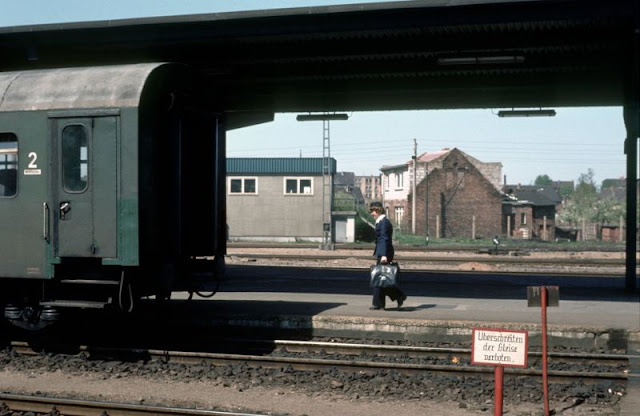 |
| Halberstadt station, Deutsche Reichsbahn, 1980 |
 |
| Halberstadt street scenes, 1980 |
 |
| Halberstadt street scenes, 1980 |
 |
| Halberstadt street scenes, 1980 |
 |
| Halberstadt street scenes, 1980 |
 |
| Halberstadt street scenes, 1980 |
 |
| Halberstadt, Straßenbahn, 1980 |
 |
| Halberstadt, Straßenbahn, 1980 |
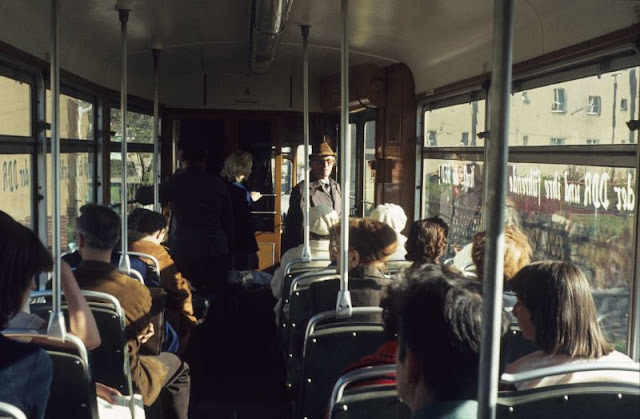 |
| Halberstadt, Straßenbahn, 1980 |
 |
| Halberstadt, Straßenbahn, 1980 |
 |
| Halberstadt, Straßenbahn, 1980 |
 |
| Halberstadt. Trabi and tram, 1980 |
 |
| Hasselfelde street scenes, 1980 |
 |
| Hasselfelde street scenes, 1980 |
 |
| Magdeburg Hauptbahnhof, 1980 |
 |
| Magdeburg street scenes, 1980 |
 |
| Magdeburg street scenes, 1980 |
 |
| Magdeburg street scenes, 1980 |
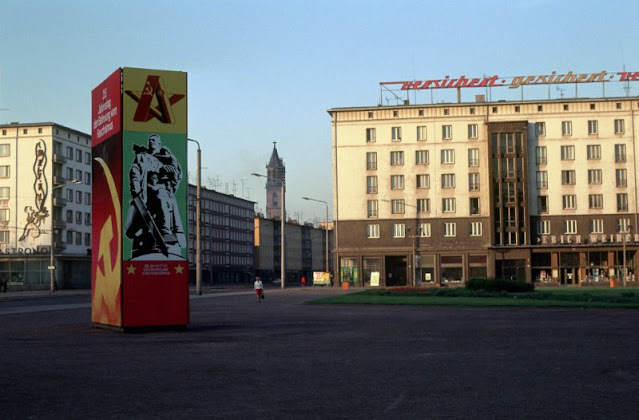 |
| Magdeburg street scenes, 1980 |
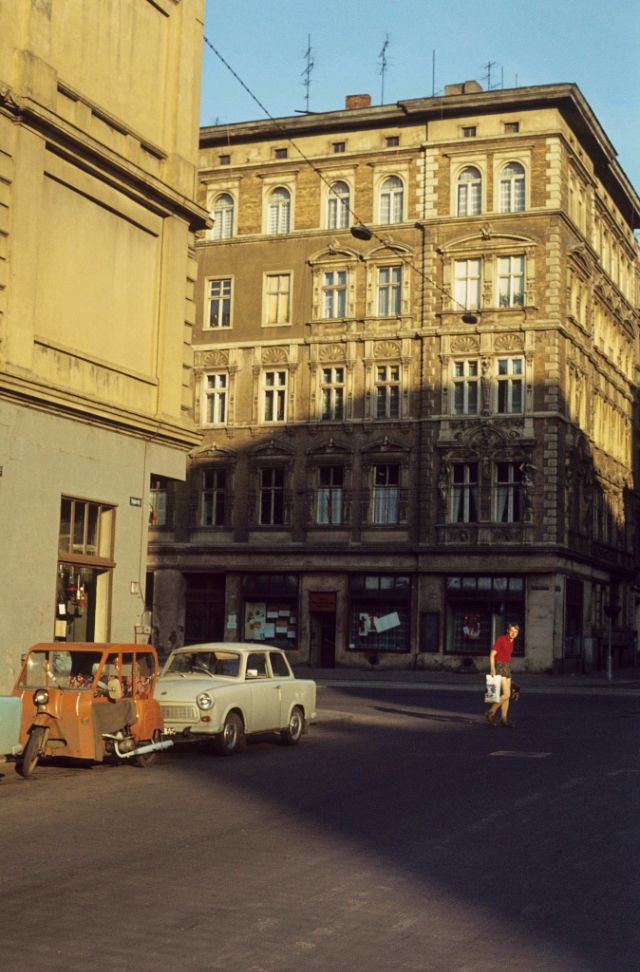 |
| Magdeburg street scenes, 1980 |
 |
| Magdeburg street scenes, 1980 |
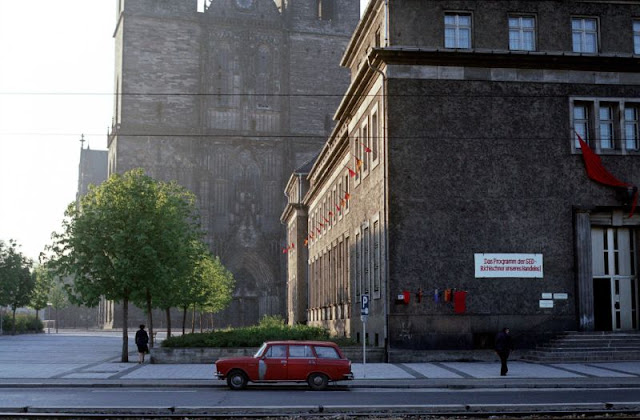 |
| Magdeburg street scenes, 1980 |
 |
| Magdeburg street scenes, 1980 |
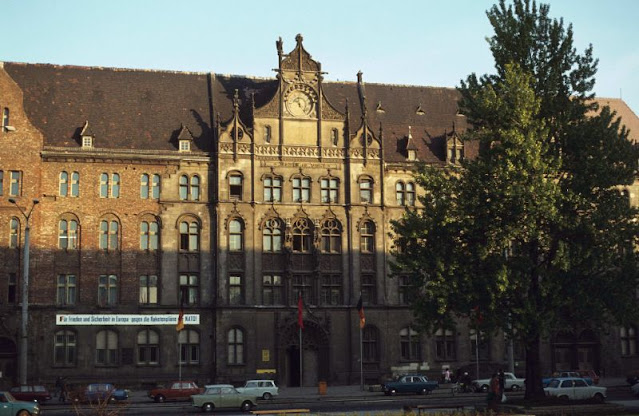 |
| Magdeburg street scenes, 1980 |
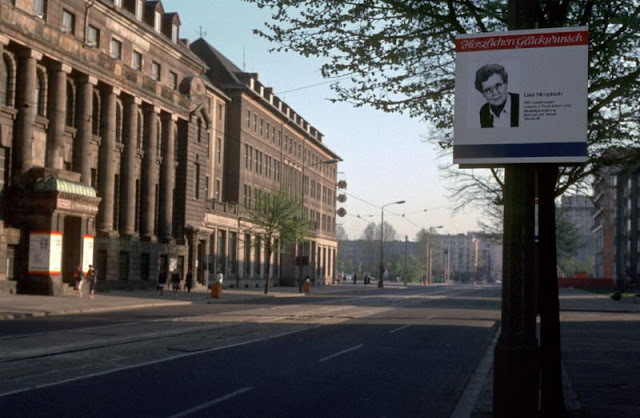 |
| Magdeburg street scenes, 1980 |
 |
| Magdeburg, 1980 |
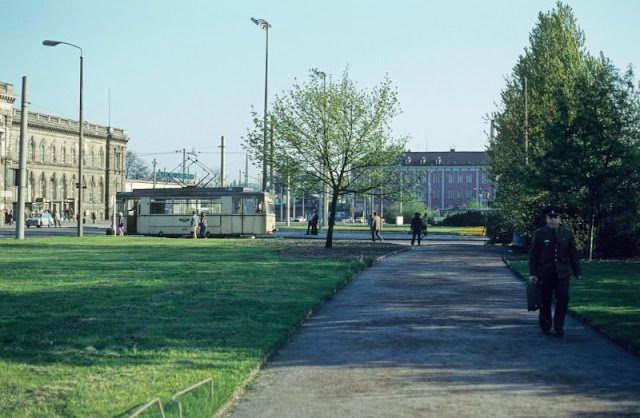 |
| Magdeburg, 1980 |
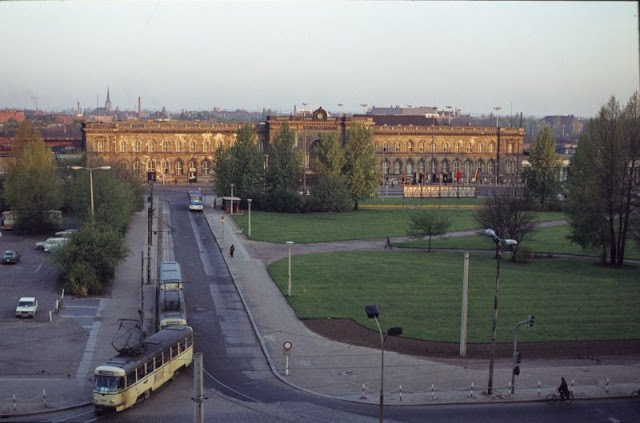 |
| Magdeburg. Bahnhofplatz in the early morning, 1980 |
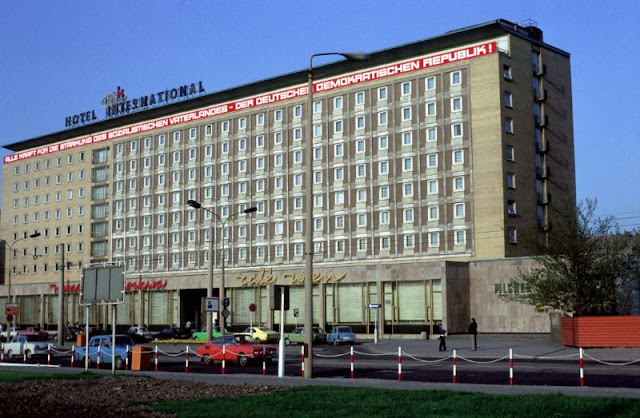 |
| Magdeburg. Hotel International, 1980 |
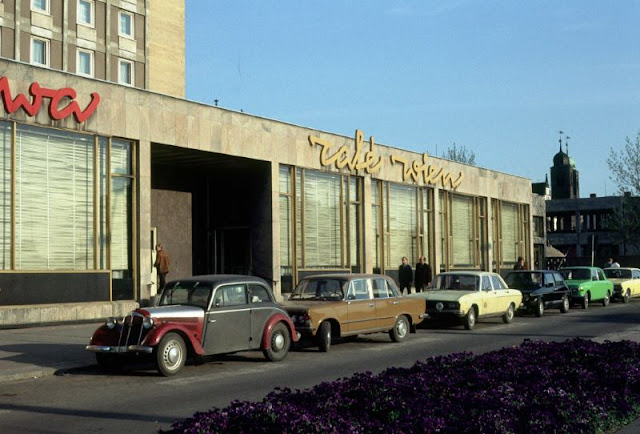 |
| Magdeburg. Hotel International, 1980 |
 |
| Magdeburg. Raffle in front of the Magdeburg main station, 1980 |
 |
| Magdeburg. View from the train station, 1980 |
 |
| Nordhausen station, 1980 |
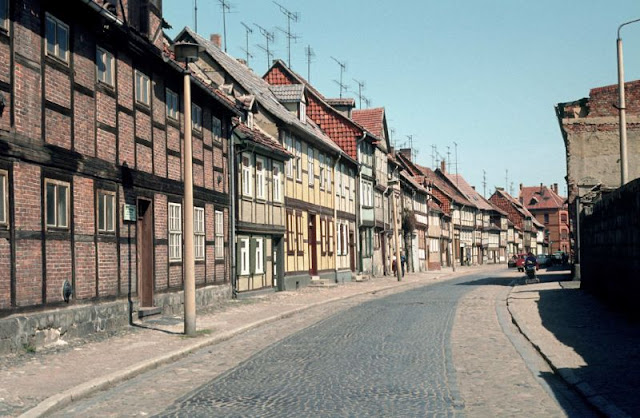 |
| Quedlinburg street scenes, 1980 |
 |
| Quedlinburg street scenes, 1980 |
 |
| Rudolstadt city center, 1980 |
 |
| Rudolstadt city center, 1980 |
 |
| Saalfeld station, 1980 |
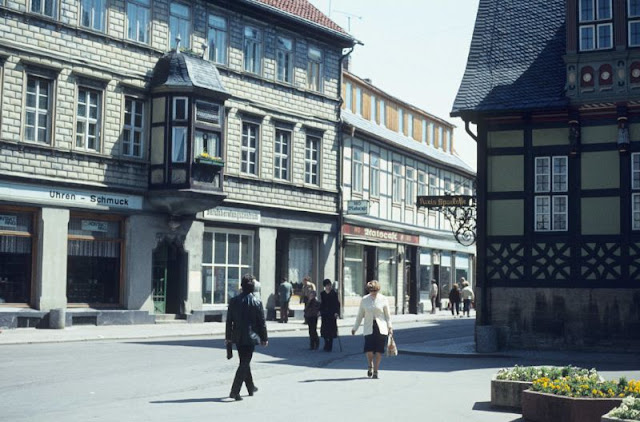 |
| Wernigerode, 1980 |
 |
| Wernigerode, 1980 |
Page 2
East Germany, officially the German Democratic Republic (GDR), was a country in Central Europe that existed from its creation on 7 October 1949 until its dissolution on 3 October 1990. Until 1989, it was generally viewed as a communist state, and it described itself as a socialist “workers’ and peasants’ state”.
Video Player
The economy of this country was centrally planned and state-owned. Prices of housing, basic goods and services were heavily subsidized and set by central government planners rather than rising and falling through supply and demand. Although the GDR had to pay substantial war reparations to the Soviets, it became the most successful economy in the Eastern Bloc.
Geographically, the GDR bordered the Baltic Sea to the north, Poland to the east, Czechoslovakia to the southeast and West Germany to the southwest and west. Internally, the GDR also bordered the Soviet sector of Allied-occupied Berlin, known as East Berlin, which was also administered as the country’s de facto capital. It also bordered the three sectors occupied by the United States, United Kingdom, and France known collectively as West Berlin (de facto part of the FRG). The three sectors occupied by the Western countries were sealed off from the GDR by the Berlin Wall
from its construction in 1961 until it was opened in 1989 as part of the Peaceful Revolution against East Germany.
These fascinating photos from Michel Huhardeaux that captured street scenes of East Germany in 1980.
 |
| Halberstadt main street in the morning, 1980 |
 |
| Halberstadt station, 1980 |
 |
| Halberstadt station, Deutsche Reichsbahn, 1980 |
 |
| Halberstadt station, Deutsche Reichsbahn, 1980 |
 |
| Halberstadt street scenes, 1980 |
 |
| Halberstadt street scenes, 1980 |
 |
| Halberstadt street scenes, 1980 |
 |
| Halberstadt street scenes, 1980 |
 |
| Halberstadt street scenes, 1980 |
 |
| Halberstadt, Straßenbahn, 1980 |
 |
| Halberstadt, Straßenbahn, 1980 |
 |
| Halberstadt, Straßenbahn, 1980 |
 |
| Halberstadt, Straßenbahn, 1980 |
 |
| Halberstadt, Straßenbahn, 1980 |
 |
| Halberstadt. Trabi and tram, 1980 |
 |
| Hasselfelde street scenes, 1980 |
 |
| Hasselfelde street scenes, 1980 |
 |
| Magdeburg Hauptbahnhof, 1980 |
 |
| Magdeburg street scenes, 1980 |
 |
| Magdeburg street scenes, 1980 |
 |
| Magdeburg street scenes, 1980 |
 |
| Magdeburg street scenes, 1980 |
 |
| Magdeburg street scenes, 1980 |
 |
| Magdeburg street scenes, 1980 |
 |
| Magdeburg street scenes, 1980 |
 |
| Magdeburg street scenes, 1980 |
 |
| Magdeburg street scenes, 1980 |
 |
| Magdeburg street scenes, 1980 |
 |
| Magdeburg, 1980 |
 |
| Magdeburg, 1980 |
 |
| Magdeburg. Bahnhofplatz in the early morning, 1980 |
 |
| Magdeburg. Hotel International, 1980 |
 |
| Magdeburg. Hotel International, 1980 |
 |
| Magdeburg. Raffle in front of the Magdeburg main station, 1980 |
 |
| Magdeburg. View from the train station, 1980 |
 |
| Nordhausen station, 1980 |
 |
| Quedlinburg street scenes, 1980 |
 |
| Quedlinburg street scenes, 1980 |
 |
| Rudolstadt city center, 1980 |
 |
| Rudolstadt city center, 1980 |
 |
| Saalfeld station, 1980 |
 |
| Wernigerode, 1980 |
 |
| Wernigerode, 1980 |
